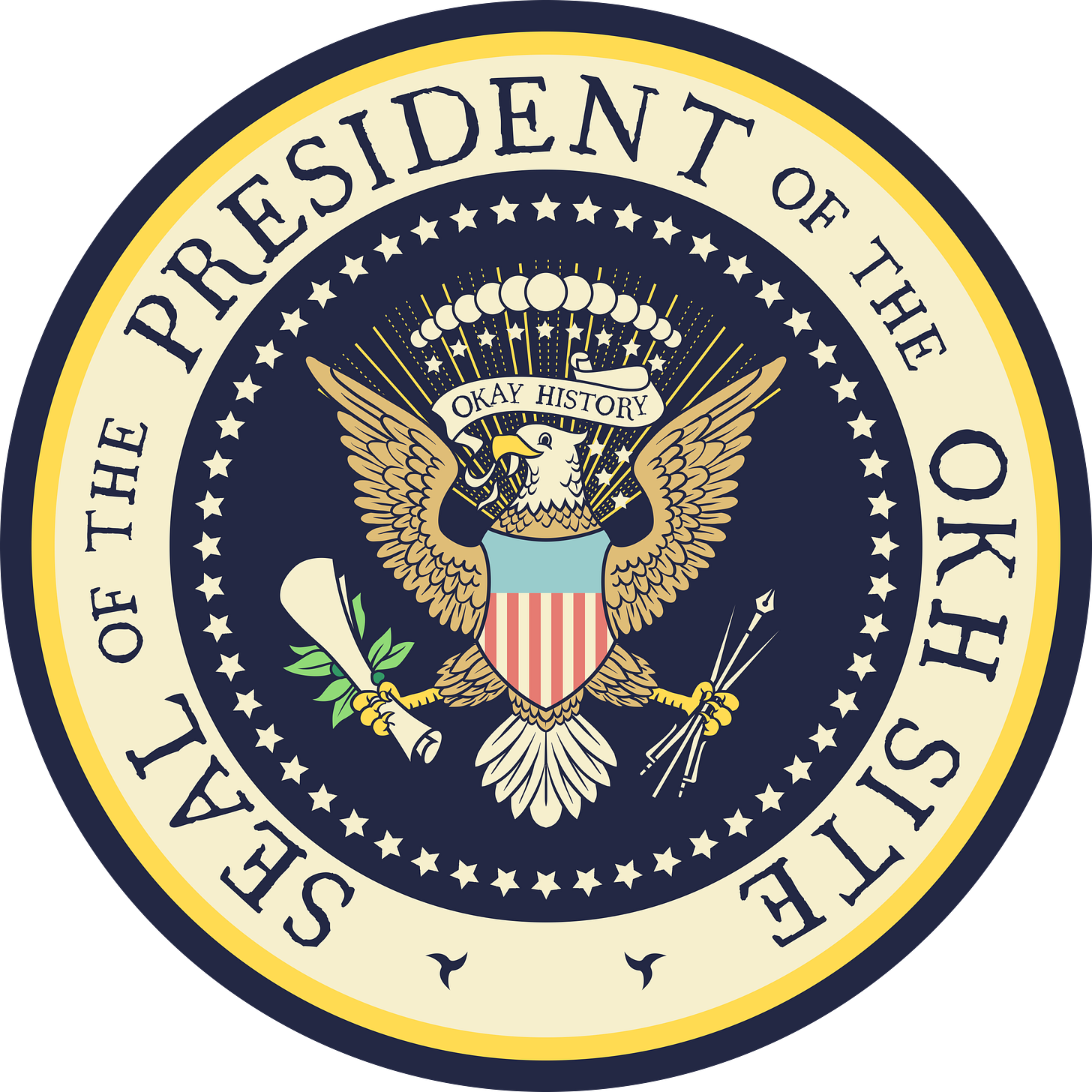Pardon Me.
Mercy me - the pardon process crazy
Answering a question on why he pardoned Changpeng Zhao, a billionaire and founder of a crypto exchange company called Binance, who pled guilty to charges of fraud and failing to prevent terrorists from laundering their money, the President of the United States responded that he didn’t know the man they call “CZ.”
“I don’t know who he is,” is the exact quote.
This is a few days after his administration received criticism for the pardon deal, as crypto and CZ, in particular, had helped finance lucrative deals for the president’s sons. I guess I shouldn’t worry about Eric and Don Jr. leveraging the White House to enrich themselves, because in that same interview, the president said, “My sons are involved much more in crypto than I – me – I know very little about it.”
Well then.
I like to think I’m pretty good at making jokes, but there is no way I could have ever conjured up this scene.
But it gets better.
President Trump continued that, while doing his best St. Peter impression by denying knowing CZ, he sure as heck knows the details behind his prison sentence, which he described as a “Biden Witch Hunt.” Did he learn this through legal analysis or a careful reading of the statutes CZ admitted violating?
No. None of that.
“I was told about it.”
Despite admitting just seconds earlier to his lack of knowledge of the industry, Trump would declare he is the cause for the United States being “number one in crypto in the world”, while other countries are “fighting like hell to be.” It’s unclear how one leads an industry they don’t understand, but this guy has been failing forward his entire life, so why change now?
But pardoning CZ, even though you don’t know him? This is the American justice system.
We have got to talk about pardons.
Beginnings
Before we get lost in the absurd present, it’s worth noting that pardons have always been a blend of forgiveness, politics, and craziness. Article II, Section II of the United States Constitution allows the president the power to grant reprieves and pardons for offenses against the United States. The only exemption is in cases of impeachment.
Like most things written in that document, it leaves a lot of wiggle room for interpretation. And boy-oh-boy, have we interpreted it creatively over the two hundred-plus years.
The concept of pardoning is another one of these judicial practices we brought over from our British Overlords. The Crown was able to pardon guilty people as a “prerogative of mercy.” The magic trick of erasing a conviction, whether delivered by a trial with a judge and jury or by your own admission of guilt, can be viewed in many ways. Pardoning can be seen as a check on the judiciary, a political connection, or you simply don’t know the person but are convinced he was screwed by the last guy who had your job, and your sons will make a ton of money off it.
Right from the get-go, under the “prerogative of mercy,” presidents have been using pardons in all sorts of ways, in all matters imaginable.
From George Washington to the “I don’t know who he is” current occupant, the list is long and winding.
In short:
Washington pardoned leaders of the Whiskey Rebellion; President Ford pardoned Richard Nixon “to heal the nation”; Carter issued blanket pardons to Vietnam draft evaders; Clinton pardoned a wealthy donor; and Trump pardoned January 6 defendants and, of course, CZ— a guy he claimed not to know.
Let’s Be Clear
For two centuries, pardons have been used to try to heal, help friends, or stick it to your opponents. The problem with pardons is a lack of transparency. The country has a pardon lawyer in the Department of Justice, and you’d be forgiven if you imagine it being occupied by a guy named Clement Rutherford IV, who is 23 years old and is banned from stepping onto Mississippi State’s campus. Does this office ever issue details as to why the person got a pardon? I’ve never seen one.
Instead of handing the power of pardoning to a guy who falls asleep at his desk in the middle of a press conference where we learn all of us have to lose an average of 400 lbs. by next year, let’s think about better options.
We could explore sentence reform or set up commissions to review proposed pardon requests. Or we could strengthen clemency review processes. Sentencing reform reduces the need for pardons. Independent commissions add oversight. Clemency can be made systematic. Automatic restoration of rights after sentences end can remove the need for presidential intervention entirely.
Mercy and forgiveness can become a collective process, rather than something that was once bestowed upon a king. Royal authority is not something Americans tend to like.
I have no clue how we can actually fix this process, but I do understand pardons aren’t meant to be a tool for the well-connected. We need to have trust in justice itself.
Do we need pardons? Do you think they are a helpful tool?
If you enjoyed this presidential essay, please click the ❤️to help it stand out. I’d also appreciate it if you would subscribe - free or paid – to support my work.
You can also help reach new readers by sharing it on social media.
It’s been a crazy few weeks, so thank you for your patience. I’ll see you on Monday with another Maundy Monday Newsletter. Appreciate you all!
Have a great weekend and don’t do anything that you’ll need a pardon for.
Okay,
Chris




"...a guy named Clement Rutherford IV, who is 23 years old and is banned from stepping onto Mississippi State’s campus...."
...and is likely a Trump supporter...